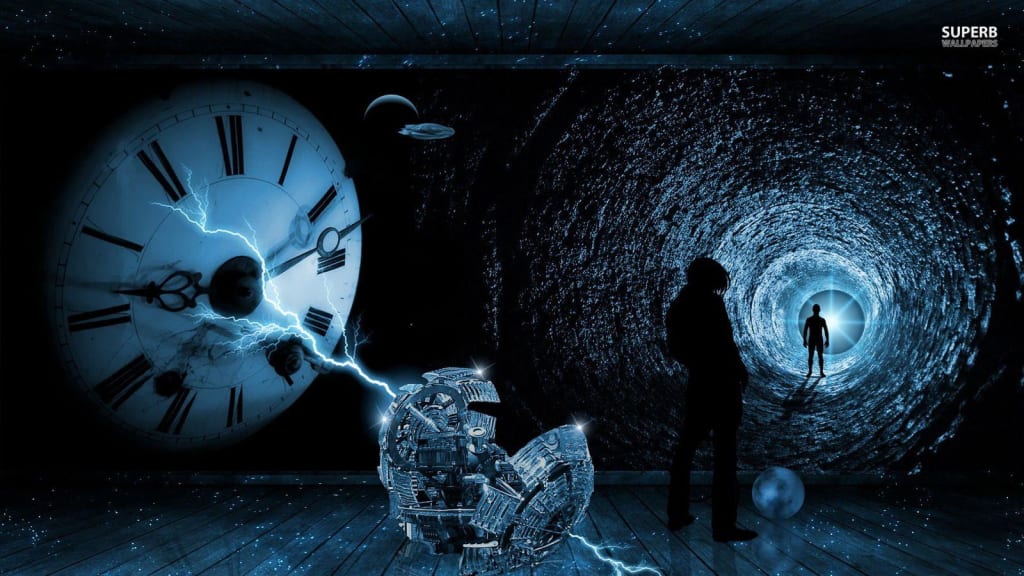Can Time Travel Be Achieved in Reality?
Time Travel

Have you ever imagined the possibility of journeying through time? I am certain that we all have. Perhaps you desire to venture into the past, to witness historical events or even alter them. Alternatively, you may be intrigued by the prospect of glimpsing into the future, to observe how events unfold. Time travel has long been a staple of science fiction, with numerous books and movies exploring its potential benefits and risks. However, the question remains: is time travel truly achievable? And if so, what prerequisites must be met? In order to comprehend the mechanics of time travel, we must first grasp the nature of time itself.
Classical physics regarded time as an absolute entity, existing uniformly for all individuals throughout the universe. It was believed to progress at a consistent pace, independent of any observer. This understanding implied that cause and effect always followed a specific order, with the cause preceding the effect. This notion formed the foundation of the universe's structure. However, this conventional understanding of time does not hold true in all circumstances.
Albert Einstein's theory of relativity revolutionized our comprehension of time and is considered one of the most significant scientific breakthroughs. According to this theory, time is an integral component of a four-dimensional construct known as space-time. Moreover, time can be influenced by various factors. For instance, objects traveling at high speeds experience time dilation, causing it to pass more slowly compared to objects with lower velocities. Similarly, objects within gravitational fields also experience a similar effect. On a human scale, this implies that an astronaut orbiting the Earth would age at a slower rate than individuals residing on the planet's surface.
However, the implications of this theory extend far beyond our immediate understanding. Consider the enigmatic phenomenon of black holes, which possess the most powerful gravitational forces in the universe. These celestial entities are so formidable that even light cannot escape their grasp. Furthermore, they induce an extreme slowing down of time. If, hypothetically, one were to venture into a black hole, they would witness events spanning hundreds of millions of years before succumbing to their inevitable fate.
In conclusion, the concept of time travel, once confined to the realms of science fiction, has become a subject of scientific inquiry. While classical physics viewed time as an absolute and unchanging entity, Einstein's theory of relativity unveiled its dynamic nature. Time is intricately intertwined with space, and its passage can be influenced by various factors. Although the practical realization of time travel remains uncertain, our understanding of time continues to evolve, pushing the boundaries of scientific exploration.
If one were to become trapped behind some bookshelves, escaping would be nearly impossible. The immense gravitational pull of a black hole would cause time to pass at an incredibly slow rate on the outside, rendering life unrecognizable. As an object approaches the speed of light, time dilation occurs, causing time to slow down. This continues until the object reaches the maximum speed attainable, which is the speed of light. At this speed, time slows down to such an extent that events appear to happen instantaneously. For instance, a photon of light emitted by a star on the opposite side of the universe would take millions of years to reach Earth, but for the photon itself, the journey would be instantaneous. Time becomes neutral at the speed of light, neither moving forward nor backward. Therefore, traveling faster than the speed of light could potentially allow for forward time travel. By accelerating away from Earth and returning, many years would pass without aging significantly. However, traveling backward in time is much more challenging. Some researchers speculate that if time is stagnant at the speed of light, surpassing this speed could potentially reverse time. This theory suggests the existence of subatomic particles called tachyons, which have never been observed but are believed to travel faster than light. However, detecting tachyons would be impossible as their arrival would occur in the future. Another concept is that of wormholes, which are hypothetical tunnels in the fabric of space-time. These wormholes could potentially create shortcuts between any two locations at any given time.
About the Creator
Reader insights
Outstanding
Excellent work. Looking forward to reading more!
Top insight
Easy to read and follow
Well-structured & engaging content





Comments (1)
wonderful story